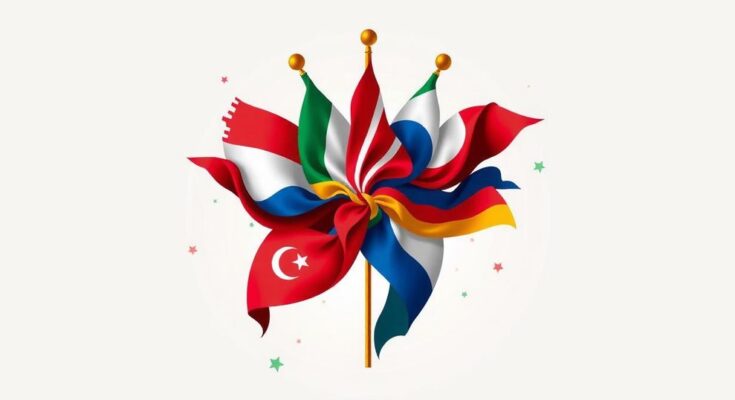Ethnic and political tensions in Sierra Leone, particularly evident in the Gorama Mende Chiefdom crisis, threaten national unity. The conflict between the Gassama and Kallon families highlights historical divisions exacerbated by colonial legacies. Political favoritism has perpetuated ethnic strife, demanding reforms for peaceful coexistence and equitable development across all regions of the country.
Ethnic politics and traditional chieftaincy conflicts have significantly influenced the socio-political dynamics of Sierra Leone. The crisis in Gorama Mende Chiefdom exemplifies how political allegiances and ethnic identities can escalate tensions, undermining national unity. This situation involves a split between the Muslim community, supporting the ousted Paramount Chief Gassama, and the Wonde Secret Society, which backs caretaker Paramount Chief Kallon, both of whom have Mandingo roots but different historical associations with the Mende ethnic group.
Without careful management, this conflict could intensify, evolving into a larger generational struggle between the Mende-Mandingo Gassama and the Mandingo-Mende Kallon families. This ongoing crises reflect a troubling trend in which traditional structures are intertwined with political power, influencing elections as witnessed in Biriwa Chiefdom during the 2018 elections. Understanding these dynamics requires a historical analysis of ethnic and political divisions in Sierra Leone post-independence.
At independence in 1961, Sierra Leone had a fragmented political climate, due in part to colonial policies that favored certain ethnic groups. The Sierra Leone People’s Party (SLPP) gained significant support from the Mende in the south and east, whereas the All People’s Congress (APC), established in 1960, drew strength from the Temne and Limba ethnicities in the north and west. Although Prime Minister Sir Milton Margai initially aimed for unity, allegations of ethnic favoritism soon emerged, particularly under his successor Albert Margai.
Siaka Stevens, who came to power in 1968, further entrenched ethnic divisions, promoting a regime that favored the Northern ethnicities and suppressed the Mende-aligned SLPP. Joseph Saidu Momoh’s weak leadership from 1985 exacerbated grievances, culminating in an 11-year civil war that, while not purely ethnic, was driven by regional and economic disparities. The war’s aftermath dismantled crucial state institutions and increased ethnic distrust.
Post-war elections saw Ahmad Tejan Kabbah’s SLPP focusing on reconciliation but continuing ethnic favoritism towards Mende areas. The rise of the People’s Movement for Democratic Change (PMDC) highlighted discontent within the SLPP demographic, contributing to the SLPP’s 2007 electoral loss to Ernest Bai Koroma. Koroma’s administration attempted economic recovery but faced accusations of partiality towards the northern regions, which flared ethnic tensions leading to the pivotal 2018 elections.
The Gorama Mende crisis underscores ongoing chieftaincy disputes and ethnic realignments as influential factors in national politics. To mitigate future conflicts, Sierra Leone needs long-term strategies promoting institutional neutrality and fair representation across all ethnicities. Redressing historical grievances, enforcing impartial chieftaincy elections, and adopting proactive educational policies will bolster national unity and cohesion.
Enhancements to the electoral system, such as proportional representation, may alleviate ethnic voting patterns. Moreover, reinforcing a ban on ethnic-based political rhetoric is vital in curbing divisive practices. As Sierra Leone confronts its history of ethnic and political fragmentation, it is critical to prioritize inclusive governance to facilitate lasting peace and equitable development for all citizens.
The ethnic and political disparities in Sierra Leone pose a continual threat to national stability, as illustrated by the Gorama Mende crisis. The country must recognize the urgency of addressing these deep-rooted issues through reforms that promote inclusion, fair representation, and neutral governance structures. Failure to act decisively may perpetuate cycles of conflict and hinder progress towards sustainable development and national unity.
Original Source: www.thesierraleonetelegraph.com




